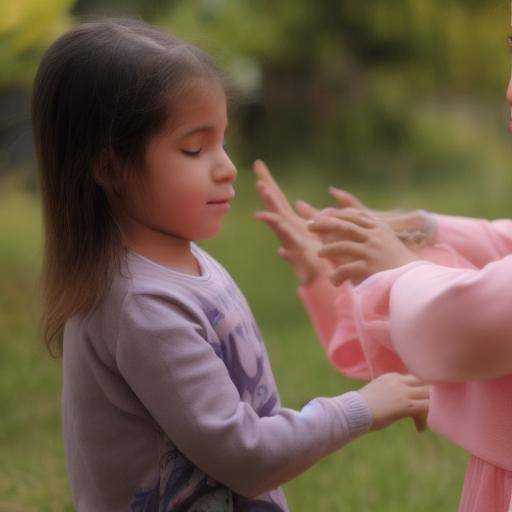
Gratitude is a powerful emotion that can positively influence our attitude and emotional well-being. Cultivating a proactive attitude through gratitude can be fundamental to confront the daily challenges. In this article, we will explore the relationship between gratitude, proactive attitude and emotional well-being, discover how to cultivate gratitude can positively impact our attitude towards life and provide practical advice to integrate gratitude into our daily routine.
Importance of Gratitude and Proactive Attitude
Gratitude is defined as the ability to recognize and appreciate the positive in our lives, while the proactive attitude involves taking the lead in creating positive changes. The combination of both can lead to stronger emotional well-being and a more satisfying way of living.
History and Background of Gratitude
The practice of gratitude has deep roots in different cultures and philosophies throughout history. Ancient civilizations, like the Greeks and Romans, considered gratitude as a fundamental virtue. Since then, it has been a recurrent theme in literature, religion and psychology.
In the 1990s, positive psychology, led by Martin Seligman, began to scientifically investigate the impact of gratitude on emotional well-being. Studies showed that practicing gratitude on a regular basis can reduce stress, increase happiness and strengthen interpersonal relationships.
Detailed Analysis of the Relationship Between Gratitude and Proactive Attitude
Gratitude not only has emotional benefits, but can also positively impact physical health. A study published in the journal "Personal Relationships" revealed that grateful people tend to exercise more and have fewer visits to the doctor.
To maintain a proactive attitude, it is crucial to actively promote gratitude in our lives. This can be achieved through practices such as carrying a daily of thanks, expressing appreciation to others and reflecting on the positive moments of the day.
Integration of Gratitude in the Labour Area
The concept of gratitude has also been integrated into the labour sphere. Organizations are implementing thank-you programs that foster a positive working climate and increase employee productivity. Studies have shown that gratitude in the workplace leads to greater labor satisfaction and a reduction in absenteeism.
Proactive attitude, when combined with gratitude, promotes resilience in times of adversity. People who address the challenges with a proactive and grateful mentality are more likely to overcome obstacles and achieve long-term success.
Practical Tips and Recommendations for Gratitude Cultivation
To integrate gratitude into our daily lives, we can begin by identifying at least three things we are grateful for every day. Taking a diary of gratitude or spending a few minutes each night to reflect on the positive can be an excellent starting point. In addition, expressing our gratitude to others strengthens our relationships and fosters a sense of community.
Industry Perspectives and Expert Reviews
Companies are increasingly recognizing the value of gratitude and proactive attitude in organizational culture. According to human resources experts, fostering an environment in which employees feel valued and appreciated can have a significant impact on retaining talent and overall productivity.
Case Studies and Practical Applications
The testimonies of people who have adopted gratitude as part of their daily lives can serve as inspiration. Listening to how gratitude has transformed the lives of others can motivate us to incorporate this practice into our own routine.
Future Trends and Predictions
As more researchers and health professionals recognize the positive impact of gratitude on emotional well-being, we are likely to see growth in the implementation of programs and tools aimed at fostering it in various areas of life. The connection between gratitude, proactive attitude and emotional well-being is also likely to become a central focus on positive psychology and well-being management.
Conclusion
Gratitude can be a powerful booster of a proactive attitude and greater emotional well-being. By recognizing and appreciating the positive in our lives, we can cultivate a proactive mentality that allows us to face resilience challenges and actively seek growth opportunities. Incorporating gratitude into our daily routine can lead to a more meaningful and fulfilling life.
FAQs
- **How can I begin to practice gratitude if I have never done it before?**Start by dedicating a few minutes each day to reflect on the things you are grateful for. This can be as simple as appreciateing a beautiful day or evaluating the company of a loved one.
- **Is gratitude the same as positivity?**While gratitude and positivity are related, gratitude is specifically focused on recognizing and appreciating what is available, while positivity can be a more general perspective that seeks to maintain an optimistic mentality.
- **How can gratitude affect my emotional well-being?**Gratitude has proven to reduce stress, increase happiness and strengthen interpersonal relationships, which contributes significantly to emotional well-being.
- **Can gratitude be practiced in a working environment?**Absolutely. Many companies implement gratitude programs that include the recognition of employees' achievements, the valuation of their contributions and the promotion of a positive working climate.
- **Is it possible to be proactive and grateful at the same time?**Yes, gratitude and proactive attitude can coexist. Being proactive involves taking the lead in creating positive changes, while gratitude can serve as an emotional basis for addressing resilience challenges.
- **Is gratitude only an individual approach or can it affect larger groups?**Gratitude can have a significant impact on communities, work teams and entire organizations. When gratitude is encouraged in a collective environment, interpersonal relationships are strengthened and a culture of appreciation is promoted.
We hope that these answers will clarify your doubts about gratitude, proactive attitude and emotional well-being.
In short, gratitude can be a powerful driver of a proactive attitude and greater emotional well-being. By recognizing and appreciating the positive in our lives, we can cultivate a proactive mentality that allows us to face resilience challenges and actively seek growth opportunities. Incorporating gratitude into our daily routine can lead to a more meaningful and fulfilling life. Recognizing and valuing what we have can lead us to a more full and fulfilling life.






















































